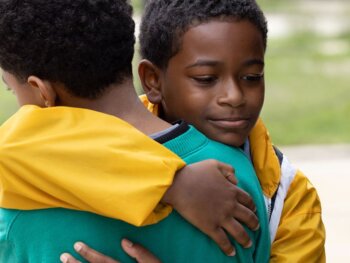Tips on how to make your child's camp experience the best ever!
It's that time of the year again. The snow is long gone and the temps are rising. Children can be seen playing outdoors. I joined my friend Nitika at the nearby park where her ten year old daughter was having a great time. As Nitika and I chatted, she revealed to me that she was planning on sending her daughter Rhea to a summer camp for the first time. She was excited yet anxious. How could she prepare her for camp!
Rini Mishra is mom to two wonderful twins — Snehal and Dionee. The kids had their first summer camp when they were in their fourth grade and they loved it. As Rini puts it, "The kids made new friends, learned something new and developed a sense of responsibility. They are eager to start the next one". A summer camp is an important step for children and parents. It's a time that the children will remember in the years to come. So, in that spirit, we talked to a few experienced mothers and collected some some insightful pointers on how you can prepare your kid for summer camp.
Know more about the camp
It's a good idea to do a bit of summer camp research. As a parent, talk to the camp organizers about any fears and concerns that you may have. If your kid is internet savvy, have them go online and check the camp website out so they too can be involved in the process and get excited about it. That way, your child will know what to expect and the transition from home to camp will be much easier. Here are a few key questions to ask while you are doing your camp research:
-
What kind of activities and programs does the camp offer?
-
How many counselors does the camp have? Are they qualified enough to conduct a summer camp?
-
Will there be field trips for campers and if so where?
Develop a sense of responsibility
At camp, children will be expected to perform tasks on their own. A sense of responsibility has to be developed. It would help if the child is encouraged early on to participate in daily chores like making their own bed, keeping their room tidy and helping you in shopping. These habits are likely to continue at camp. If the child is scared to stay away from home, encourage the child to spend quality time at a relative or friend's place as a teaser to camp-life. This will most likely remove any fear and anxiety from your mind and of course help your child relax as well.
Pack smart
It's important that you pack all the essential items that will be required at camp, and include your child in the packing process. This way they will actually know what's in their bag as they head off to camp. A list of "must carry" items is usually provided by the camp organizers. Essential items that you should pack would be:
* sleeping bag
* pillows
* toiletries
* shampoo
* soap
* swimsuit
* pyjamas
* sunblock
* insect repellant
* comfortable clothes for day and warm clothes for the evening
* towels
* first aid box
* rain gear
* sportswear
* sport shoes
* emergency contact info (always have them tagged to your child's luggage)
If your little one is on medication and needs special treatment, let the camp authorities know. As a parent, you might be tempted to give your child an iPod or a cell phone, but many camps don't encourage electronic gadgets (remember, it's CAMP!) So, to avoid your child being crushed by the last minute removal of these items right before they head off, do your research to make sure they are allowed in the first place. If the camp is for a longer duration (beyond a couple of weeks), include a family photo for the child in case they get homesick.
Develop good hygiene habits
Have a chat with your child about hygiene issues at camp. Small but important practices like washing hands before eating, applying sunscreen to avoid sunburn, brushing teeth and changing clothes before sleeping at night will ensure that they stay healthy and relatively germ-free. And yes, just like before school, always give your child a quick lice check to make sure they are clean and good to go. Mothers should talk freely to their teenage daughters about periods and overall feminine hygience. Again, having that conversation with the counselor will also avoid uncomfortable situations.
Communicate with your child
It's important that the child is able to tell you, if they're experiencing any problems at camp. If this is a second trip around, and this time they aren't that enthusiastic about it, there could be a reason, so read the signals. Maybe they aren't crazy about the camp activities, not being able to perform them, or possibly, a case of being bullied. Initiate a conversation with your child so that they can open up to you or to the counselor if a problem occurs. Rini adds, "Children don't open up at this age. So, we need to be friends to them so that they open up". Encourage your child to record their thoughts in a journal about how they feel about the camp. You could even write a few positive reaffirming notes and drop it in their bag for them to discover during camp. Provide some sheets of paper and stamped envelopes so if they want to write home, they can.
Sending kids to summer camp can be a wise decision as the result is experience, friends and a lifetime of memories. With a little homework and ensuring that your child will enjoy the overall experience, camp can be a great time for everyone!
BY SMRUTI DAS
Sources: campspirit.com, ideas.time.com, sheknows.com, inquiry.net, nim.nih.gov














































































































